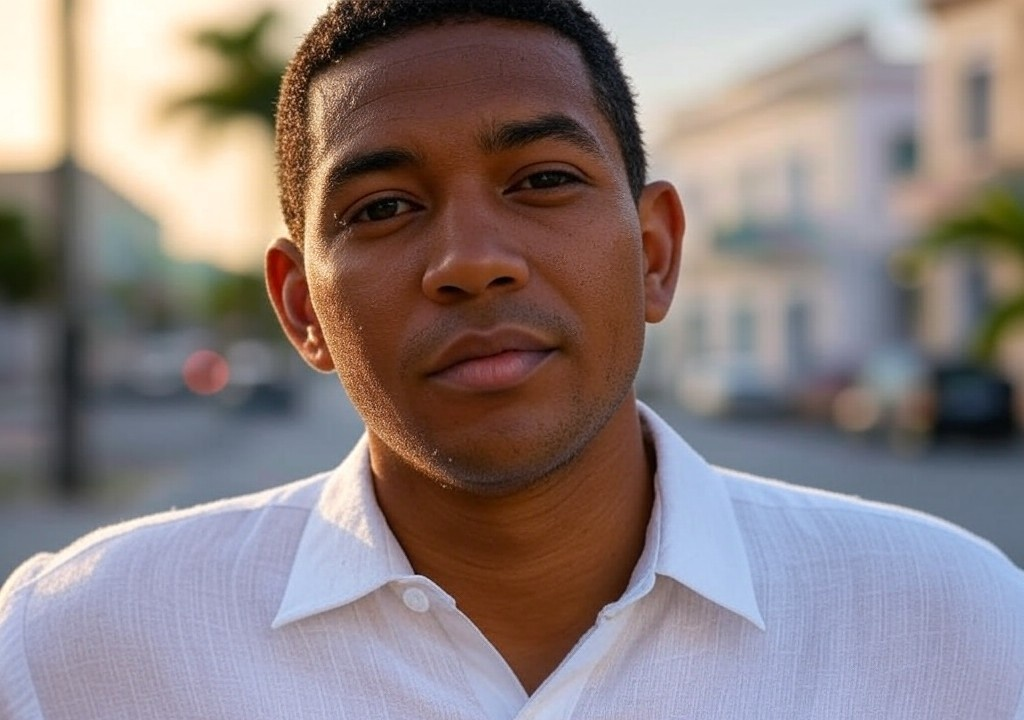Who Are You When No One’s Looking?
One of my childhood neighbors, Doña Maritza, used to tell me, “Raulito, people show you who they are when they think you’re not watching. Pay attention.” She’d say this while balancing a cafecito and a plate of pastelitos with the skill of someone who knew that food heals all wounds. She meant it as advice about trust, but I’ve carried it everywhere—including into dating, writing, and figuring out how to move through life with my heart intact.
It’s not just about paying attention to others; it’s about knowing who you are when no one’s watching. That’s what I stand for—authenticity, kindness, and the courage to bring your personal truths to the often messy, occasionally hilarious, always unpredictable world of love and connection.
If you’ll indulge me for a few minutes, let’s unpack this with a little wit and a lot of cafecito energy—because this is about you just as much as it’s about me.
The Flan Test—A Blueprint for Authenticity
Growing up in Hialeah, desert loyalty was serious business. Did you swear by flan de coco, or were you more of an arroz con leche purist? Every bakery had its specialty, and loyalties ran deep. These arguments over flan taught me more about relationships than any teen drama on TV. Why? Because the lesson was simple: if you don't know what you like—or worse, if you lie about liking flan when you know it’s arroz con leche you’re secretly craving—you’re already starting off on the wrong foot.
Authenticity in love isn't just about showing someone your quirks. It’s about showing yourself first. I stand for honesty, not the postcard-perfect kind you slap on an Instagram caption, but the gritty, sometime awkward “this is me” kind.
Real-life example? I once told someone on a first date that I still compulsively listen to Celia Cruz when I’m sad. “Dancing fixes things,” I added. He stared, bewildered, as if salsa was sacrilegious. That’s when I realized: if you can’t even vibe to La Vida Es Un Carnaval with me, we’re gonna have issues.
Takeaway? Know what brings flavor to your life—a flan kind of joy, a Celia kind of rhythm—and don’t dial it down for someone else’s comfort. Bring your true self to the table—and let the arroz con leche lovers find you.
Write Your Love Story Like You Mean It
Believe it or not, I approach love the way I approach writing. (Does that sound dramatic? Probably because it is.)
Every good story starts with knowing your premise. Why are you here? What do you stand for? And, como abuela always said, “¿Qué hay pa’ resolver?” (Translation: what are you solving for?)
Love and life are both messy drafts. They involve a lot of crossing things out, circling back, and sometimes realizing your main character—you—needs some rewriting. If you don’t know your plot, anyone who walks in can hijack your story, slap their highlight reel over yours, and suddenly you don’t recognize the narrative anymore.
When I write, I remind myself: every choice is a chance to honor the story's truest form. The same goes for love—whether you’re single, coupled, or somewhere in the entanglement zone (been there). Ask yourself:
- What kind of connection feels good to me?
- What values do I refuse to compromise on?
- Am I editing myself to fit someone else's expectations?
If a connection doesn’t resonate with the story you’re writing for your life, it’s okay to close the chapter. No shade, just self-respect. After all, some characters are meant to be plot twists—not the ending.
Cuban Time and Learning to Show Up
I can’t tell you how many quinceañeras I’ve been to where “It starts at 6” really meant “We’ll see you at 8, maybe 8:15 if Tito finds parking.” We Cubans might be fashionably late to just about everything, but there’s one rule that runs deeper: You show up. If it matters, you show up for your people—on Cuban Time, sure, but always with your whole heart.
This is where kindness enters the picture. Not the fake, “I’m doing this to look good” kind of kindness. I mean the intentional, vulnerable, show-up kind. Real kindness asks: What does this person need, and how can I show up for them—even if it’s a little uncomfortable? Maybe it means listening without fixing. Maybe it’s delivering hot croquetas after a breakup (a highly underrated love language, by the way). Or maybe it’s recognizing when you’re not emotionally available and taking the time to heal first, so you don’t bleed all over someone else’s story.
Relationships—romantic, platonic, or otherwise—thrive on this balance of presence and vulnerability. When you show up as your authentic, flan-or-arroz-loving self, you give others the courage to do the same.
Dancing Through the Mistakes
I’ve always believed life imitates the moves of salsa—passionate, sweaty, improvisational, but infinitely better when you let yourself move to the beat instead of overthinking every step. In love, you’re going to trip—probably a lot. You’re going to miscommunicate, send texts that sound more aggressive than you intended, or completely blank on whether you’re supposed to bring a bottle of wine or a bouquet to a third date (Pro tip: bring both. People love thoughtful gestures).
My most cringe-worthy mistake? In college, I once tried to impress a girl by quoting Pablo Neruda but somehow confused his work with José Martí mid-sentence. My cheeks were redder than a ripe tomate by the time she called me out. Still, I made it through the awkwardness. I owned it. And you know what? We laughed about it.
The point is, mistakes are inevitable. What matters is how you recover. Do you laugh at yourself or spiral into shame? Do you listen when someone calls you out for being self-absorbed, or do you sulk? Love doesn’t come with choreography. Learn the rhythm, trust your instincts, and keep dancing.
The Power of “Yet”
There’s a word I love that doesn’t get enough hype in life or dating: yet. Whenever I’ve been tempted to beat myself up about a failed relationship, I return to it. It’s the difference between “I’m not great at setting boundaries” and “I’m not great at setting boundaries yet.” One opens the gate for despair. The other leaves room for growth.
Standing for your values doesn’t mean you have it all figured out. I still struggle. Heck, sometimes I still catch myself saying yes when I mean no or clamming up instead of speaking my mind in a vulnerable moment. But kindness—toward others and myself—means recognizing the gaps and throwing myself into the long, messy process of filling them.
This is what I’ve learned: Relationships demand generosity. Not of money or grand gestures (though who doesn’t love a surprise road trip?), but of grace. Grace for mistakes, grace for growth, grace for the parts of you that may still be finding the courage to shine.
Final Thoughts Over Cafecito
At the end of the day, what I stand for in my writing—and in my relationships—is this: be honest about your mess, be kind to yourself while cleaning it up, and show up fully for the people who matter.
Flan or arroz con leche, salsa or hip-hop, cringey missteps or smooth talkers—it’s all part of the dance. No matter where you are on your journey from flirt to familiar, I’m cheering you on.
So, next time someone tries to fit you into their narrative before asking about yours? Politely remind them: my story is mine to write, and it's a bestseller in the making.
Now go—sky's the limit. Don’t forget your dancing shoes.




















